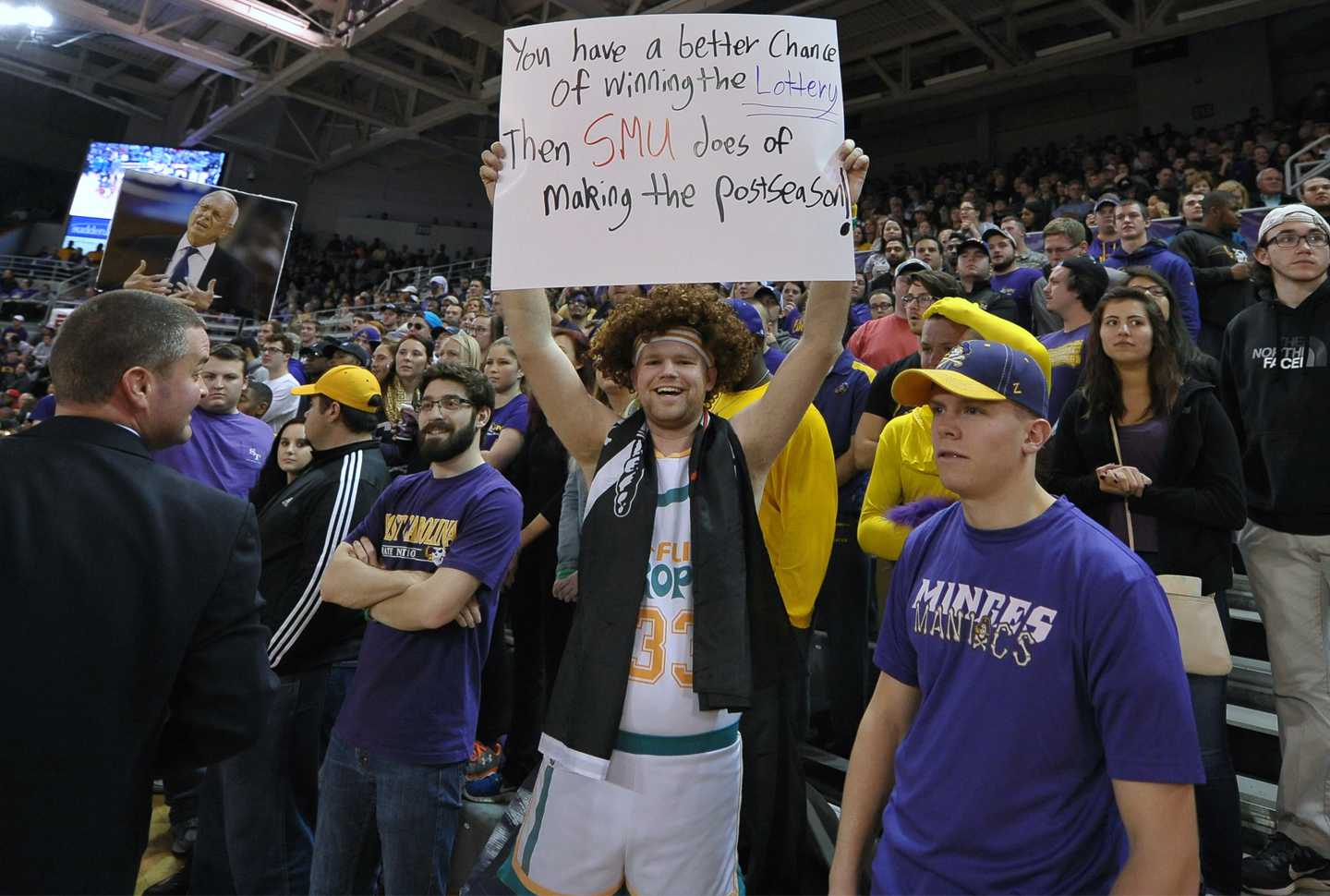March represents the climax of the college basketball year. Teams build their entire season to peak during the postseason tournaments that just took place and to get in The Dance. For many, to win in March—regardless of what happens during the conference schedule—equals a successful season.
But as regional bracket play begins today and “one shining moment” dreams abound, among the many teams sitting at home, one had their dreams crushed long before March arrived.
Before the season, the Southern Methodist University Mustangs men’s basketball team was banned from postseason play, and Hall of Fame coach Larry Brown received a nine game suspension for rules violations surrounding academic and ethical misconduct. While a controversial ruling, the university did not appeal the ban.
A central critique of the ban surrounded the effect on student-athletes not directly involved in the case. In an open letter to the NCAA, SMU basketball players wrote a compelling letter asking for a reconsideration of the consequences.
Even after their plea to the NCAA, the ban stood.
So what would happen to the Mustang’s season? Would the team still work hard, or would they lose motivation without the reward of the postseason as a goal?
What would any of us do in this situation? What would YOU do? What does it look like for a Christ-following player or coach in this moment to honor and glorify God?
The power of motivation
What motivates us becomes a key element in what we pursue and focus on in our lives. Studies in human behavior show that motivation can be intrinsic or extrinsic.
Get our "Top Articles" sent to your inbox weekly.
Intrinsic motivation comes from within ourselves, such as the desire to work hard to demonstrate our capacity for achievement.
Extrinsic motivation focuses on rewards existing outside ourselves, like the desire to gain a spot on the varsity team because of its inherent status.
Researchers say humans are typically motivated by a combination of both internal and external factors. But what happens when a central extrinsic motivation is no longer available? How does this affect our view of the world and the tasks ahead of us?
Motivation resourced by the gospel
At some point in life, we will probably lose out on a opportunity we feel we deserved. This can occur in any area of our lives. It could be a spot on the varsity team, a trip to the playoffs, a promotion at work, or a position in an organization we care about.
Sometimes we lose out because of our own shortcomings or missteps.
Sometimes we do all that we can and still come up short.
Worse, sometimes it’s the shortcomings or missteps of others which can be even more frustrating.
Regardless of the circumstances, the loss of this extrinsic motivation can change how we view people or a situation.
The loss can anger us, cause us to reevaluate the decisions we have made, even question our motives going forward. But it does not mean we should give up.
In his second letter to the Corinthians Paul writes:
So we do not lose heart. Even though our outer nature is wasting away, our inner nature is being renewed day by day. For this slight momentary affliction is preparing us for an eternal weight of glory beyond all measure, because we look not at what can be seen but at what cannot be seen; for what can be seen is temporary, but what cannot be seen is eternal. (2 Cor 4: 16-18, NRSV)
The challenges we face should not cause us to lose faith or motivation, but push us forward to show the power of Christ’s love inside us. When we choose to follow Jesus Christ, we declare to the world that the extrinsic motivations of success and winning are secondary to the service and worship of God which come from the transforming power of the gospel inside us.
Regardless of why the extrinsic rewards get stripped away, we still have intrinsic value and abilities given by our Creator. Using the abilities and effort God gave us intrinsically in moments where we have little or nothing to gain extrinsically tells the world that showing off God’s gifts and love controls our lives—even in the midst of pain and disappointment.
Hats off to the Mustangs!
SMU hardly gave up on the season. They began the year 18-0 and became the last undefeated team in the nation. They finished with a record of 22-5 and were ranked #25 in the final AP Poll of the year.
Any other year this team would have been poised to contend for a conference tournament title and a deep run in the NCAA tournament.

Instead of looking forward to their opening round game, the players of the SMU basketball team can look back at the effort put forward when there was little extrinsic reward to play for. Even when they felt they were wrongly penalized, they did not give up, and in doing so unknowingly modeled what it looks like when a team plays to the glory of God.
While they cannot play for a championship, they played with the effort and motivation of champions. Striving to reach our potential, even when extrinsic goals are not present, brings out the goodness in play, sport, and our faith.
More importantly, it points to the core of what transformational faith looks like.
When we allow God to renew and shape us on a daily basis we always have something—and Someone—to play for.














